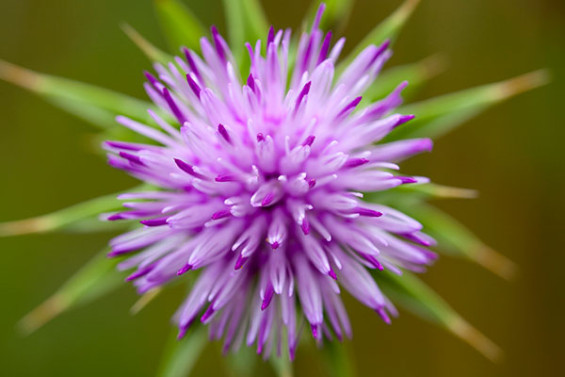Are hot flashes a normal part of life? or are there ways to reduce having hot flashes through every stage of menopause?
Hot Flashes – to Suffer or not
I have listened to thousands of females over the past 40 plus years express the horrors of hot flashes, mood swings, irritability, and the myriad of symptoms that encompass the passage through menopause.
 The majority of women suffer through sometimes many years of great discomfort or they take prescription hormone replacement to lessen the symptoms.
The majority of women suffer through sometimes many years of great discomfort or they take prescription hormone replacement to lessen the symptoms.
What are Hot Flashes?
I’ve heard hot flashes described to me as the feeling of burning up to the point of exploding from the inside out. What we know happens physiologically during a hot flash is your temperature increases. Some women experience reddening skin and perspiration. Others feel like they have a fever. Hot flashes can also be accompanied by irregular heartbeat. And after that’s all over, many women shiver due to feeling cold.
What Causes Hot flashes?
While most scientists believe hot flashes are caused due to changes in estrogen, would you believe that hot flashes are intended to cool your body down? That’s right! The waning of estrogen makes your body’s hypothalamus more sensitive to changes in body temperature. Your hypothalamus senses you’re getting too warm. So it sets off a chain of events, a “hot flash,” to get your body to cool down. The additional increase in temperature signals your body to cool you off. And that’s why some women can end up shivering from the cold at the end of a hot flash.
How to Relieve Hot Flashes
Many women are turning to hormone replacement therapy to regulate hot flashes and other symptoms they experience during menopause. However, there is a growing number of women who aren’t sure about synthetic hormones and are searching for natural alternatives. Typically, we’ve made recommendations for over-the-counter remedies such as black cohosh, red clover, and other alternative choices.
Do Natural Remedies Work for Hot Flashes
I can say from my experience the natural remedies of the past have worked for women around 50% of the time. But our research around menopause and perimenopause has come a long way. While we need more tests and studies on women-related health issues and natural remedies for them, here are a few natural products that have shown great promise.
Milk Thistle

On top of all these benefits, there was a study in 2021 related to milk thistle and hot flashes. The extract from milk thistle is silybum marianum extract. And in this study, they found the extract decreased the number of hot flashes from 4.3 per day to 1.3 per day by week 12 of the study. It also reduced the severity of hot flashes on a 10 point scale from 5.3 to 1.6 in the same amount of time.
This was a double-blind randomized controlled trial, which is about as good as it gets. And the placebo in the study did not show the same level of improvement.
Fennel + Valerian Root
Both fennel and valerian root are well-known as natural herbal remedies. I’ve personally chewed fennel seeds for better breath. Tastes like licorice to me and how that cures bad breath, I have no idea! I’ve definitely used fennel in dinner recipes. And it’s long been used for poisoning and stomach distress.
Valerian root comes from the honeysuckle family. It’s been used through the years for insomnia, anxiety, headaches and more. Think of a sedative tea that would make an appearance in a Jane Austin book.
However, recently (2023), a supplement containing both fennel and valerian root extract was used in a study aimed at reducing hot flashes. It was a randomized controlled trial, which means the researchers offered participants the supplement or a placebo. Turns out the severity of hot flashes decreased after 4 – 8 weeks in the group who took the fennel + valerian root supplement. They also experienced better sleep quality after taking the supplement for 8 weeks.

Try Milk Thistle
Pueraria Mirifica
Pueraria Mirifica is also known as “Thai Kudzu.” This herb has been used in Thailand and other countries for years with great success of not only alleviating symptoms but vastly improving the health of the body in the process. Christinane Northrup M.D. states that Pueraria Mirifica has been shown to be very effective at relieving menopausal symptoms, including vaginal dryness, hot flashes, insomnia, and irritability. (page 557 Women’s Bodies, Women’s Wisdom)
One of my favorite physicians is Dr Garry Gordon who has vast experience with Pueraria with patients, speaks of its additional benefits of binding with plastics, dioxins, bisphenyl A and other chemicals so that it renders many of these chemicals inert which prevents damage to the cells. Dr Gordon also speaks on how Pueraria slows the deposition of amyloid deposits in the brain which is linked to the causes of Alzheimer’s.
He states that in Thailand women have been using Pueraria for 700 years and that the breast disease rate is incredibly low in the part of the country that consumed Pueraria compared to other parts of Thailand that did not use Pueraria!
Dr Sandy Schwartz recommends the dose should be between 100 to 500 mg/day and if someone is still having a period, using it starting on the 8th day from start of menstrual cycle to the 21st day and for women without a cycle, everyday use is considered the normal dosing. (check with your health professional if being treated for any medical conditions before starting any new treatments)


 The majority of women suffer through sometimes many years of great discomfort or they take prescription hormone replacement to lessen the symptoms.
The majority of women suffer through sometimes many years of great discomfort or they take prescription hormone replacement to lessen the symptoms.
